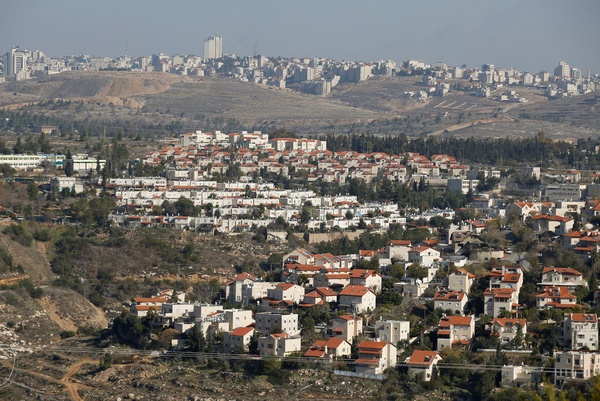
Sana‘a – Saba:
Palestinian factions have firmly rejected the Israeli Knesset’s vote on Wednesday to impose Israeli sovereignty over the occupied West Bank, stressing that resistance remains the only path until all occupied land is liberated.
Before presenting and analyzing the position of the Palestinian resistance, it's important to understand that this Israeli step exposes the enemy's continued pursuit of its plan to Judaize the entire Palestinian territory, which it claims as the "historic homeland of the Jewish people." This plan is now officially targeting what remains of the occupied West Bank — a region that Israel has fragmented into isolated enclaves through a vast number of illegal settlements. Much of this land was already seized through the construction of the apartheid wall, widespread settler expansion, and policies protecting settler gangs as they commit crimes such as murder, looting, land theft, and the forced displacement of Palestinian villagers and communities.
The Israeli regime's crimes — including home demolitions, land confiscation, and periodic settlement expansion plans — cannot be ignored. The Knesset's recent approval of a proposal to impose sovereignty over the West Bank reaffirms Israel's colonial, expansionist nature. It demonstrates that Israel does not believe in negotiations or honor agreements; even the Oslo Accords served merely as a delay tactic to buy time for its broader agenda: the full occupation and Judaization of Palestine from the river to the sea. In light of this, resistance and liberation are the only viable options.
The Palestinian resistance movements clearly understood the implications of this Israeli move, recognizing its goals and affirming the urgent need to unify the Palestinian front under the banner of resistance.
Illegitimate Sovereignty
The Islamic Resistance Movement (Hamas) stated that the Knesset’s vote to impose “sovereignty” over the occupied West Bank as a prelude to its annexation is null and void, lacking any legitimacy, and will not alter the Palestinian identity of the land.
In a statement, Hamas said, "This move is a direct challenge to international laws and resolutions and continues the Israeli government's broad violations in the occupied West Bank, including land theft, settlement expansion, and simultaneous campaigns of killings, arrests, and repression against the Palestinian people."
The movement called on "the Palestinian masses in the occupied West Bank and all active forces to unite and escalate all forms of resistance to thwart the Zionist enemy’s fascist plans."
It also urged "the international community and the United Nations to condemn this illegitimate move, hold the enemy accountable for its fascist policies and ongoing violations of Palestinian rights, and recognize how these acts fuel regional tensions."
A Dangerous Escalation
The Popular Front for the Liberation of Palestine (PFLP) described the Knesset's vote — which passed by a majority of 71 members — to impose sovereignty over the West Bank and the Jordan Valley as a "dangerous escalation" and an integral part of Israel’s settlement and Judaization plans.
In a statement, the PFLP said, "Israel already exercises full control over the land through ethnic cleansing, destruction of infrastructure, and widespread land confiscation. It enables settler gangs to commit all kinds of crimes against our people, villages, cities, and farmland."
"Formalizing this move legally only strengthens the occupation, entrenches its presence, and expands its colonial and Judaization projects while ghettoizing our people in isolated enclaves as a prelude to forced displacement."
The front emphasized that "national unity and resistance are the only means to confront this dangerous plan, which is no less serious than the genocidal crimes committed by the occupation in Gaza."
An Open Declaration of War
The Fatah–Intifada Movement viewed the Knesset’s vote to impose sovereignty over the West Bank and Jordan Valley as an open declaration of war against the Palestinian people aimed at seizing their land.
In a press release, the movement stated: "This vote is a clear acknowledgment of the open war waged by the criminal Zionist entity against the Palestinian people with the goal of land seizure and mass displacement."
It asserted that "this decision is a declaration of war on every aspect of daily life for Palestinians in the occupied West Bank. It is a Zionist admission that the so-called peace process has reached its end, having already delivered what Israel wanted — both in Al-Quds and the West Bank."
The movement added: "The Palestinian response must affirm national and popular sovereignty over the land and escalate all forms of resistance to defend our land and inalienable rights." It concluded by stressing: "The battle of will we are fighting with the enemy will end with our people’s freedom and the expulsion of the occupier from all of Palestine — from the river to the sea."
Colonial Ambitions Revealed
The Resistance Committees in Palestine viewed the Knesset’s vote to impose Israeli sovereignty over the West Bank and Jordan Valley — framing it as part of the so-called “historic homeland of the Jewish people” — as a clear expression of the Zionist entity’s colonial face and expansionist ambitions.
In a press statement, the committees declared: "This criminal vote proves that the Zionist entity has no regard for treaties or agreements. The so-called Oslo Accords were merely a tool to buy time, allowing Israel to take over and Judaize the land while expelling its rightful owners — all under the cover of Arab and Islamic silence and international hypocrisy."
The committees called on Palestinians in the West Bank, Al-Quds, and the occupied territories of 1948 to take the initiative and ignite a massive popular revolution and uprising to thwart Israel’s Judaization plans, confront the enemy, and curb its aggression against the Palestinian people and land.
In conclusion, resistance remains the only viable option to deter the occupier and thwart its ongoing colonial and Judaization projects — this time under the pretext of sovereignty. While the Israeli regime pushes forward with its goal of achieving a “historic homeland for the Jewish people,” the Palestinian resistance continues to affirm that armed and unified resistance is the only path — one with no turning back.